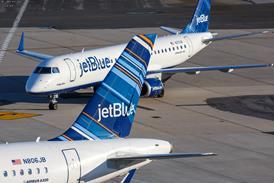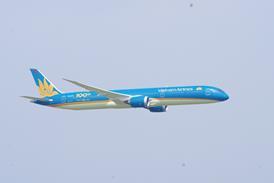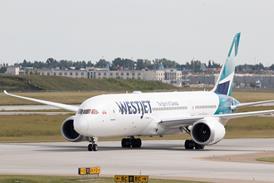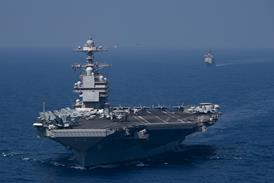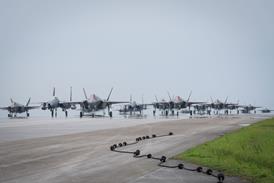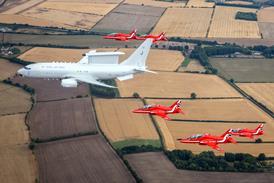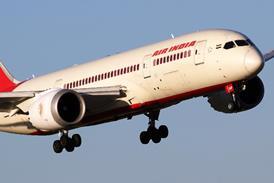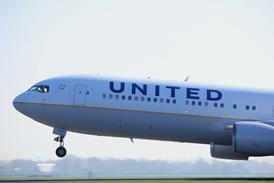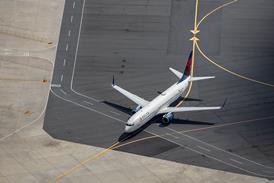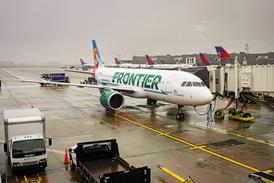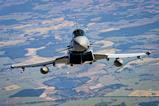Turkey has reached a deal with the UK government to for the purchase of 20 Eurofighter Typhoon tactical jets.
The £5.4 billion ($7.2 billion) agreement was announced on 27 October by UK manufacturer BAE Systems, which will provide major airframe components and complete final assembly of the Typhoon fighters.
Once fielded, the Turkish air force will become the 10th operator of the twin-engined delta-wing fighter, joining partner nations Germany, Spain, Italy, and the UK, plus export customers Austria, Oman, Qatar, Kuwait and Saudi Arabia.
“Turkey’s procurement of Typhoon marks the start of a new chapter in our longstanding relationship with this important NATO ally and reinforces the outstanding operational support the aircraft continues to deliver across Europe and the Middle East as a fundamental pillar of defence and security,” says BAE’s chief executive Charles Woodburn.
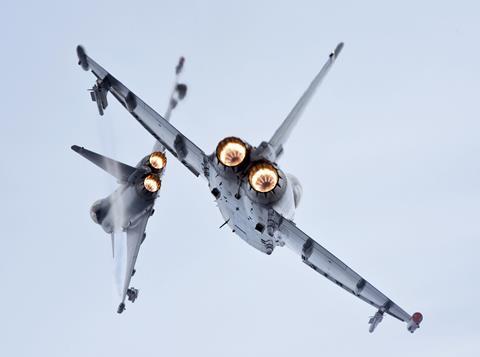
Crucially for British industry, the order will provide much needed continuity for the UK’s Typhoon supply chain after BAE completed work on orders for the Royal Air Force (RAF) earlier this year.
In July, the trade union representing some of the 20,000 UK-based workers involved in Typhoon production warned that assembly lines in Warton, Lancashire had “ground to a halt”, with staff being moved to other BAE facilities.
The Unite union had urged the UK government to step in and order more fighters for the RAF to maintain the industrial capability.
“A failure to do this could destroy a generation of aerospace workers and would amount to an act of national self-harm,” Unite general secretary Sharon Graham cautioned.
Facilities in Edinburgh, Salmesbury and Bristol contribute to the Eurofighter programme, in addition to the Warton final assembly site.
The 20-aircraft order from Ankara will avert permanent closures, according to the UK government.
”The Turkish agreement is a major boost for the British orderbook, representing the biggest fighter jet deal in almost 20 years and saving the Warton production line,” London says.
BAE confirms Typhoon production in the UK will now extend into the 2030s. Woodburn describes the domestic fighter manufacturing programme as preserving “crucial sovereign skills which underpin the UK’s defence and security.”
The weapons package for Turkey’s new Typhoon fighters will come from European munitions manufacturer MBDA, of which BAE is a 37.5% shareholder.
BAE also has a 37.5% workshare in the Eurofighter programme as the UK’s industrial lead. The company is responsible for design, production, upgrade, sustainment and export of Typhoon fighters.
The Turkish order will bridge a significant gap for the UK’s aerospace workforce between the end of domestic Eurofighter procurement and the expected 2035 introduction of the multinational Global Combat Air Programme sixth-generation fighter – a collaboration between Italy, Japan and the UK.
Despite that risk, London has show little indication it will purchase any additional Typhoons, although the UK’s Strategic Defence Review document published earlier this year does outline a major upgrade programme for existing jets.
In addition to the successful effort with Turkey, the UK government is also heading an export campaign in Saudi Arabia for new Typhoon orders adding to Riyadh’s existing fleet of 72 Eurofighter jets.
In June, the head of the Eurofighter consortium outlined an order potential for up to 100 new aircraft, including the now-confirmed sale to Ankara and a requirement from Saudi Arabia covering 54 jets.
On the same day the Turkish order was confirmed, the defence wing of Airbus announced formal plans to begin developing an “industrial proposition” to replace Portugal’s ageing fleet of Lockheed Martin 25 F-16A/Bs with Eurofighters.
Portugal has previously said it will break with other NATO countries and not acquire the US-made Lockheed Martin F-35 stealth fighter, citing concerns about Washington’s treatment of allies and general reliability as a partner.
Fellow alliance member Canada is similarly in the midst of its own debate about participating in the F-35 programme, also citing concerns US reliability and Washington’s treatment of a once-staunch ally.


